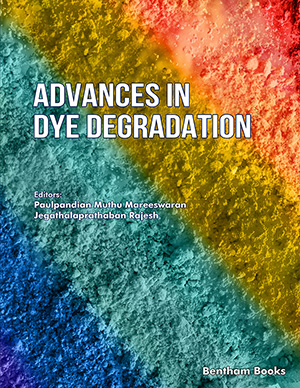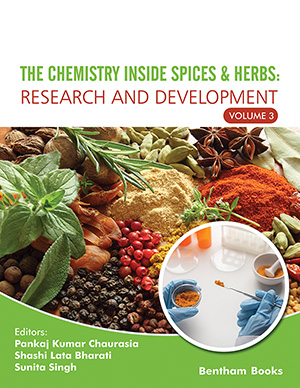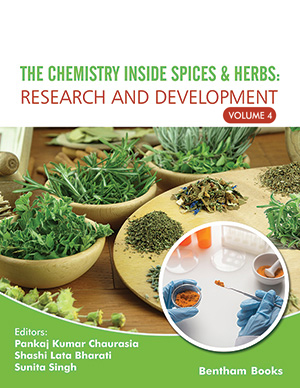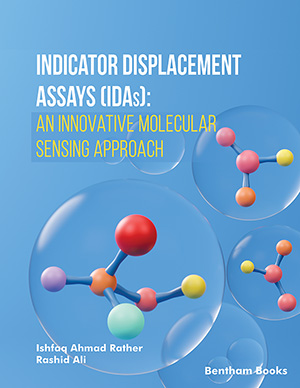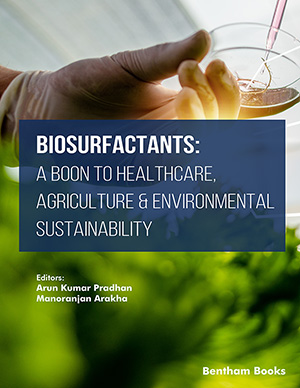Abstract
Background: Hepatocellular carcinoma (HCC) is one of the leading cancers in the world, including Taiwan. The chemoresistance of advanced HCC frequently results in the poor prognosis of patients. Previous studies demonstrated the quinoline derivative, 9-bis[2-(pyrrolidin-1-yl)ethoxy]-6-{4-[2-(pyrrolidin-1-yl)ethoxy]phenyl}-11Hindeno[ 1,2-c]quinolin-11-one (BPIQ) exerts the inhibitory potential against several cancer cells, including liver cancer cells.
Objective: We further investigated the anti-HCC effects of BPIQ, including apoptosis and the modulation of ER stress. Methods: Both trypan blue exclusion assay and colony formation assay were performed to examine whether BPIQ affects the growth of HCC cell lines Ha22T and Huh7. Flow cytometry-based assay was performed for determining the cell cycle distribution and apoptosis. Western blot assay was conducted for detecting the changes in apoptosis- and endoplasmic reticulum (ER) stress-associated proteins. Results: BPIQ inhibits cell growth and induces the apoptosis of both Ha22T and Huh7 cell lines significantly. The level of γH2AX, an endogenous DNA damage biomarker was dramatically increased suggesting the involvement of DNA damage pathway in BPIQ-induced apoptosis. Further, BPIQ down-regulates the pro-survival proteins, survivin, XIAP and cyclin D1. BPIQ also may regulate ER stress response through modulating the levels of ER stress-related proteins Glucose-regulated protein of 78 kD (GRP78), Inositol-requiring kinase-1α (IREα), C/EBP homologous protein (Chop) and calnexin. Conclusions: The anti-HCC effect of BPIQ may occur through down-regulating pro-survival proteins, and the modulation of ER stress may contribute to the BPIQ-induced apoptosis of HCC cells. The chemotherapeutic or chemopreventive applications of BPIQ for HCC treatment will be worthy of further investigation in future.Keywords: BPIQ, quinoline, HCC, DNA damage, apoptosis, ER stress, survivin, XIAP, γH2AX.
Anti-Cancer Agents in Medicinal Chemistry
Title:9-bis[2-(pyrrolidin-1-yl)ethoxy]-6-{4-[2-(pyrrolidin-1-yl)ethoxy]phenyl}-11H-indeno[1, 2-c]quinolin-11-one (BPIQ), A Quinoline Derivative Inhibits Human Hepatocellular Carcinoma Cells by Inducing ER Stress and Apoptosis
Volume: 17 Issue: 5
Author(s): Wen-Tsan Chang, Yao Fong, Shih-Chang Chuang, Chon-Kit Chou, Han-Lin Chou, Chun-Feng Yang, Chih-Hua Tseng, Yeh-Long Chen*Chien-Chih Chiu*
Affiliation:
- Department of Medicinal and Applied Chemistry, Kaohsiung Medical University, Kaohsiung 807,Taiwan
- Department of Biotechnology, Kaohsiung Medical University, Kaohsiung 807, Taiwan, 100, Shih-Chuan 1st Road, Kaohsiung, 80708,Taiwan
Keywords: BPIQ, quinoline, HCC, DNA damage, apoptosis, ER stress, survivin, XIAP, γH2AX.
Abstract: Background: Hepatocellular carcinoma (HCC) is one of the leading cancers in the world, including Taiwan. The chemoresistance of advanced HCC frequently results in the poor prognosis of patients. Previous studies demonstrated the quinoline derivative, 9-bis[2-(pyrrolidin-1-yl)ethoxy]-6-{4-[2-(pyrrolidin-1-yl)ethoxy]phenyl}-11Hindeno[ 1,2-c]quinolin-11-one (BPIQ) exerts the inhibitory potential against several cancer cells, including liver cancer cells.
Objective: We further investigated the anti-HCC effects of BPIQ, including apoptosis and the modulation of ER stress. Methods: Both trypan blue exclusion assay and colony formation assay were performed to examine whether BPIQ affects the growth of HCC cell lines Ha22T and Huh7. Flow cytometry-based assay was performed for determining the cell cycle distribution and apoptosis. Western blot assay was conducted for detecting the changes in apoptosis- and endoplasmic reticulum (ER) stress-associated proteins. Results: BPIQ inhibits cell growth and induces the apoptosis of both Ha22T and Huh7 cell lines significantly. The level of γH2AX, an endogenous DNA damage biomarker was dramatically increased suggesting the involvement of DNA damage pathway in BPIQ-induced apoptosis. Further, BPIQ down-regulates the pro-survival proteins, survivin, XIAP and cyclin D1. BPIQ also may regulate ER stress response through modulating the levels of ER stress-related proteins Glucose-regulated protein of 78 kD (GRP78), Inositol-requiring kinase-1α (IREα), C/EBP homologous protein (Chop) and calnexin. Conclusions: The anti-HCC effect of BPIQ may occur through down-regulating pro-survival proteins, and the modulation of ER stress may contribute to the BPIQ-induced apoptosis of HCC cells. The chemotherapeutic or chemopreventive applications of BPIQ for HCC treatment will be worthy of further investigation in future.Export Options
About this article
Cite this article as:
Chang Wen-Tsan, Fong Yao, Chuang Shih-Chang, Chou Chon-Kit, Chou Han-Lin, Yang Chun-Feng, Tseng Chih-Hua, Chen Yeh-Long*, Chiu Chien-Chih*, 9-bis[2-(pyrrolidin-1-yl)ethoxy]-6-{4-[2-(pyrrolidin-1-yl)ethoxy]phenyl}-11H-indeno[1, 2-c]quinolin-11-one (BPIQ), A Quinoline Derivative Inhibits Human Hepatocellular Carcinoma Cells by Inducing ER Stress and Apoptosis, Anti-Cancer Agents in Medicinal Chemistry 2017; 17 (5) . https://dx.doi.org/10.2174/1871520616666160802121456
| DOI https://dx.doi.org/10.2174/1871520616666160802121456 |
Print ISSN 1871-5206 |
| Publisher Name Bentham Science Publisher |
Online ISSN 1875-5992 |
Call for Papers in Thematic Issues
Discovery of Lead compounds targeting transcriptional regulation
Transcriptional regulation plays key physiological functions in body growth and development. Transcriptional dysregulation is one of important biomarkers of tumor genesis and progression, which is involved in regulating tumor cell processes such as cell proliferation, differentiation, and apoptosis. Additionally, it plays a pivotal role in angiogenesis and promotes tumor metastasis ...read more
Induction of cell death in cancer cells by modulating telomerase activity using small molecule drugs
Telomeres are distinctive but short stretches present at the corners of chromosomes and aid in stabilizing chromosomal makeup. Resynthesis of telomeres supported by the activity of reverse transcriptase ribonucleoprotein complex telomerase. There is no any telomerase activity in human somatic cells, but the stem cells and germ cells undergone telomerase ...read more
Innovative targets in medicinal chemistry
Medicinal chemistry continuously evolves in response to emerging healthcare needs and advancements in scientific understanding. This special issue explores the current landscape of innovative targets in medicinal chemistry, highlighting the quest for novel therapeutic avenues. From traditional drug targets such as enzymes and receptors to emerging targets like protein-protein interactions ...read more
Metalloenzymes and Cancer: Μetalloenzyme Ιnhibitors and Artificial Metalloenzymes as anti-cancer agents
Metalloenzymes are enzymes containing metal ions, which are directly bound to the enzyme and play a role in promoting catalysis. About one-third of all enzymes known so far are metalloenzymes [1]. Metalloenzymes are central to a wide range of essential biological activities, including nucleic acid modification, protein degradation, and many ...read more
 48
48 4
4
- Author Guidelines
- Graphical Abstracts
- Fabricating and Stating False Information
- Research Misconduct
- Post Publication Discussions and Corrections
- Publishing Ethics and Rectitude
- Increase Visibility of Your Article
- Archiving Policies
- Peer Review Workflow
- Order Your Article Before Print
- Promote Your Article
- Manuscript Transfer Facility
- Editorial Policies
- Allegations from Whistleblowers
Related Articles
-
Molecular Markers of Glioblastoma and the Potential for Integration with Imaging: the Future for Assigning Prognosis and Best Treatment Strategy
Current Molecular Imaging (Discontinued) Wnt / β-Catenin Signaling Pathway as Novel Cancer Drug Targets
Current Cancer Drug Targets Cancer and Stem Cells
Current Cancer Therapy Reviews Oncolytic Viruses: Programmable Tumour Hunters
Current Gene Therapy Interventional Radiology in Paediatrics
Current Pediatric Reviews Anti-Apoptotic Genes in the Survival of Monocytic Cells During Infection
Current Genomics Malignant Mesothelioma: Biology, Diagnosis and Therapeutic Approaches
Current Molecular Pharmacology CASC15: A Tumor-Associated Long Non-Coding RNA
Current Pharmaceutical Design Intercellular Genomic (Chromosomal) Variations Resulting in Somatic Mosaicism: Mechanisms and Consequences
Current Genomics Stem Cell Pharmacogenomics
Current Topics in Medicinal Chemistry HspB1 Dynamic Phospho-Oligomeric Structure Dependent Interactome as Cancer Therapeutic Target
Current Molecular Medicine Peroxisome Proliferator Activated Receptor-Gamma Ligands as Potent Antineoplastic Agents
Current Medicinal Chemistry - Anti-Cancer Agents IP6 (Inositol Hexaphosphate) as a Signaling Molecule
Current Signal Transduction Therapy Management of Gene Variants of Unknown Significance: Analysis Method and Risk Assessment of the VHL Mutation p.P81S (c.241C>T)
Current Genomics ‘From Death, Lead Me to Immortality’ – Mantra of Ageing Skeletal Muscle
Current Genomics Gankyrin Oncoprotein: Structure, Function, and Involvement in Cancer
Current Chemical Biology Molecular Dynamics, Density Functional Theory, Pharmacophore Modeling, Molecular Interaction Fields and ADME/Tox Investigation of Novel Bioactive Compounds Interacting with CDK2 Surfaces
Current Physical Chemistry Porphyrins and Phthalocyanines Decorated with Dendrimers: Synthesis and Biomedical Applications
Current Organic Synthesis Viral Carcinogenesis of Oral Region and Recent Trends in Treatment
Recent Patents on Biomarkers Small and Long Non-Coding RNAs: Novel Targets in Perspective Cancer Therapy
Current Genomics


















